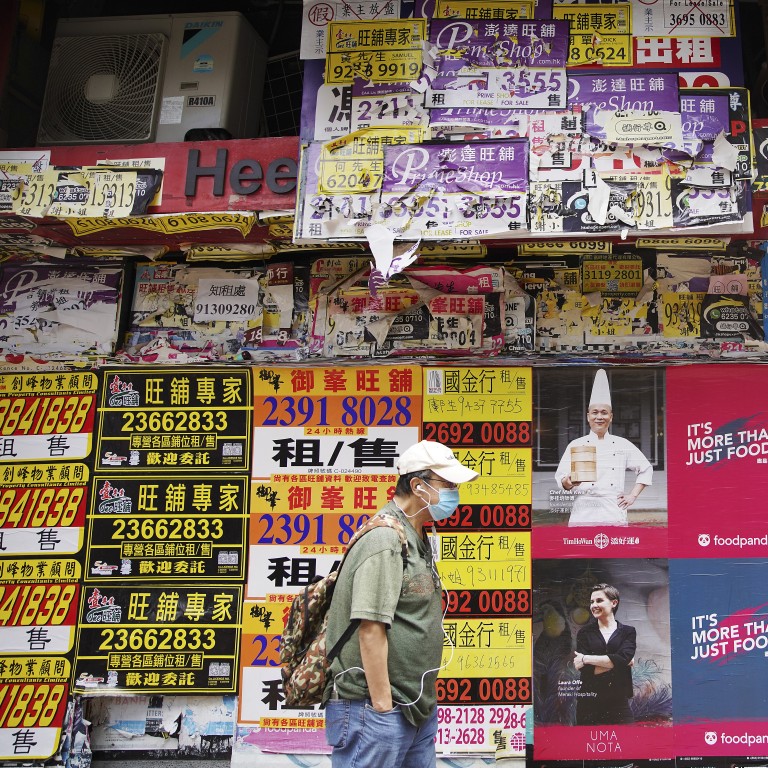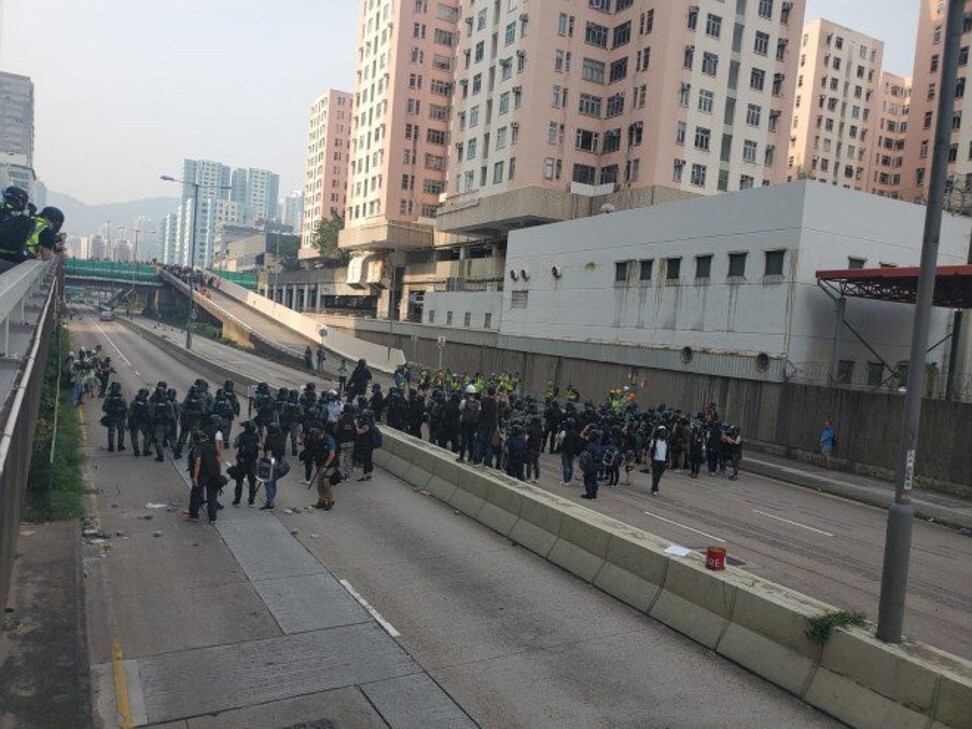
Hong Kong developers rebuild cash hoard to prepare for new opportunities amid biggest market correction in four years
- Some of the city’s biggest developers have sold HK$4 billion (US$516 million) of noncore assets to ready cash for new opportunities
- Non-residential property market has slipped by up to 20 per cent from the mid-2019 peak, amid the longest losing stretch in at least four years.
This year, groups including Wheelock Properties, Chinachem and New World Development have raised more than HK$4 billion (US$516 million) from the sale of retail, office and car parking spaces across the city, according to company announcements and government land records.
“Having a strong cash flow is extremely important during economic hardship,” said Vincent Cheung, managing director of Vincorn Consulting and Appraisal. “Most developers tend to dispose of individual assets in noncore locations as yields are relatively poorer.”
In the latest transaction, Wheelock sold the Oasis Place retail complex in Kai Tak, near the site of the city’s former international airport in Kowloon, for HK$200 million, according to a September 14 company statement.
The group has collected HK$620 million over the past 12 months from noncore asset sales, including shops at Lexington Hill in Kennedy Town, parking spaces at World Tech Centre in Kwun Tong and Telford House in Kowloon Bay.

“We will continue to sell our noncore assets when we receive reasonable offers,” Wheelock Properties chairman Stewart Leung Chi-kin said. Smaller neighbourhood malls is likely to be put up for sale after the flats there are sold out, he added. “We will keep the large shopping centres.”
Chinachem has also been nimble in its recent approach. The developer last month sold almost 34,000 sq ft of retail spaces within the Billionaire Royale residential project in Kowloon City for HK$457 million, according to property agents and Land Registry records.

“The cash generated from the sale of noncore assets will be used to look for prime and quality property,” Chinachem executive director Donald Choi Wun-hing said. While sales of investment properties have been slow, “demand is still there,” he added.
New World Development has generated HK$10.6 billion from the sale of noncore assets and business in the year ended June 30. The group aims to raise HK$15 billion over the a two-year period, it said in February.

The group will continue to optimise its assets and business portfolios, a spokeswoman said. It would look for new projects and acquisition opportunities with growth potential and strong recurring cash flow, she added.
The current shakeout has turned Hong Kong into a buyer’s market, according to Cheung at Vincorn. While the decline in prices of retail properties remains rather limited, the four-quarter slide in the office and flatted factories segments is the longest going back to 2003, according to government statistics.
“The economic and financial distress could soon create new opportunities and bargains,” Cheung said.

